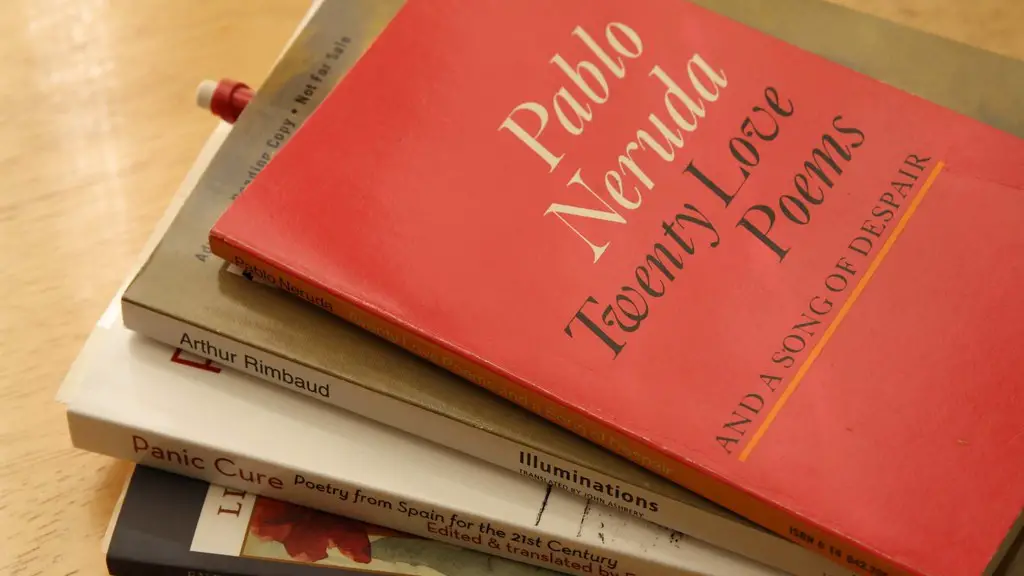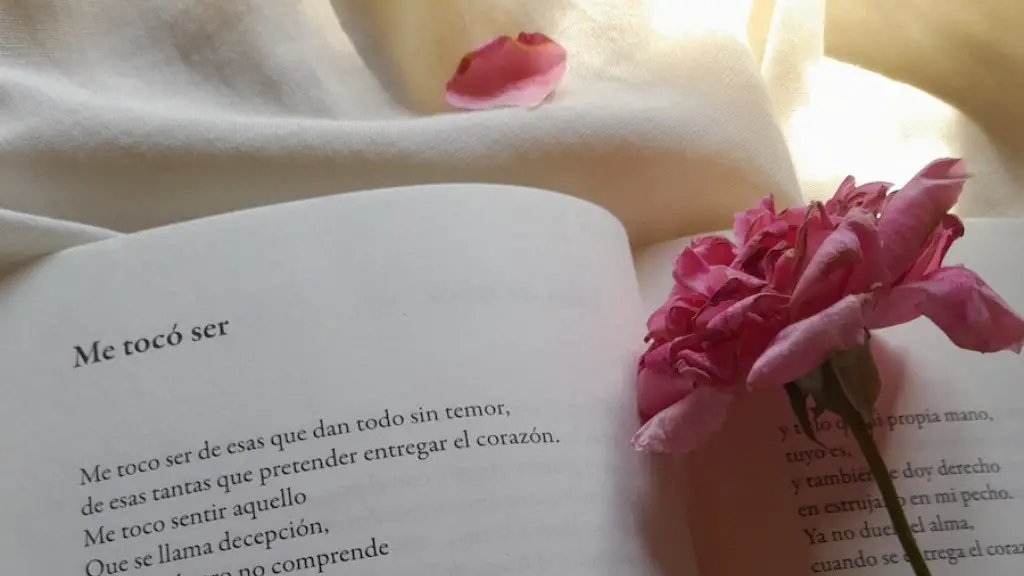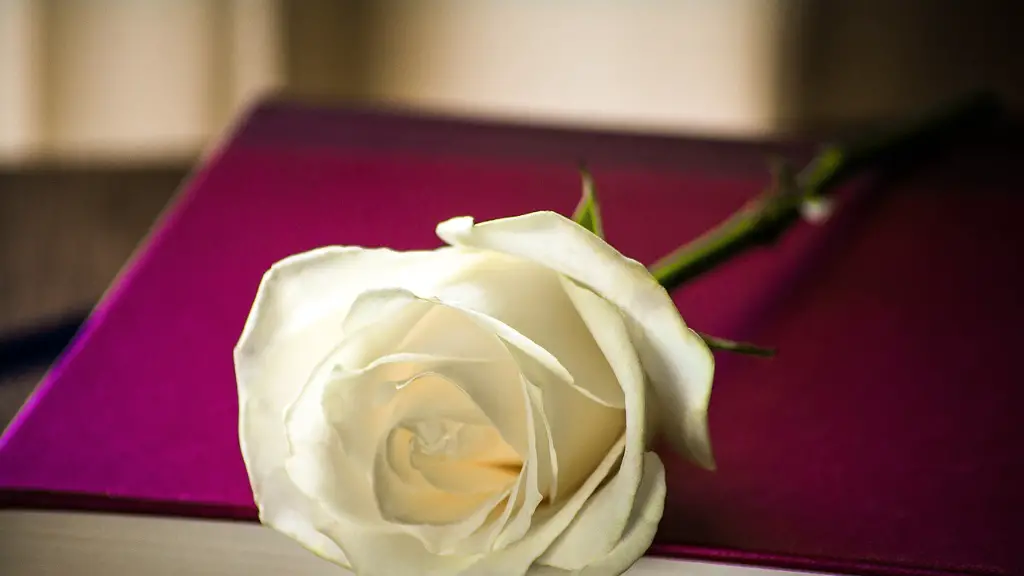Modernist poetry emerged in the early 20th century in response to the evolving social and political realities of the time. It is characterized by a distinct break from classic poetry norms and conventions, with poets taking a more lyrical and exploratory approach to literature. At the heart of modernist poetry lies experimentation, as poets began to embrace new themes and classical imagery, while experimenting with language and form.
The political, social and cultural realities of colonialism, and the aftermath of the First World War, provided the backdrop for modernist poetry. Colonialism and imperialism had changed the way the world worked politically, economically and socially, resulting in drastic changes in the identities of people living in different parts of the world. This new reality – as well as the devastating impact of the First World War on Europe – provided the source of inspiration for many modernist poets. Poets such as T.S. Eliot, Wallace Stevens, Ezra Pound, and William Carlos Williams looked to the revolutionary spirit of the era to express their feelings of alienation and the experience of war.
Modernist poetry rejected traditional rhyme and metre in favour of free verse, which allowed poets greater flexibility in their writing. While some poets rejected classic form completely and wrote in a completely free form, others embraced more radical experiments with form, language, and imagery. This allowed for a much more intuitive and emotive writing style, enabling poets to get closer to expressing their personal experience of the world around them. This approach was seen as a way of creating a new language and form, which could then be used to explore and express ideas that would have been too daring to be expressed within the confines of traditional poetry forms.
The modernist poets also embraced individualism, often employing irony and satire to question and challenge the values and norms of the day. They sought to explore new ideas and concepts, thinking beyond convention and exploring the world in more abstract and interpretive ways. This approach was seen as a rejection of the restrictive laws and norms of classical poetry, and as a move away from traditional views on the role of the poet in society.
The combination of these different aspects of modernist poetry – experimentation, individualism, and questioning of the status quo – paved the way for the development of a new, more innovative form of poetic expression. Through their work, modernist poets not only provided a powerful commentary on the social, political and cultural realities of the time, but also created a platform for a new, more expressive form of literature.
Individuals in Modernist Poetry
Modernist poets embraced individualism, often exploring themes such as identity and self-expression. Poets such as T. S. Eliot and Ezra Pound used modernist poetry as a platform to explore their own unique identities. While Eliot wrote extensively about his experiences living abroad in Europe, Pound wrote about his nomadic lifestyle and his struggles with mental illness.
In their work, both poets sought to redefine the concept of the individual, rejecting the norms of classical poetry in favour of individual expression and interpretation. This approach was seen as a way of challenging the status quo and in turn, creating a more expressive way of communicating. By embracing individualism, modernist poets sought to create a new and more authentic form of poetic expression.
In addition to exploring individualism, modernist poets sought to explore new ideas and concepts, often experimenting with language and form in order to challenge traditional views on poetry. Wallace Stevens and William Carlos Williams, for example, experimented extensively with rhythm and metre in their poetry in order to create new and innovative poetic forms.
Importantly, modernist poetry also provided a platform for questioning and challenging the status quo. Through their work, modernist poets sought to explore new ideas and concepts, while questioning traditional views on the role of the poet in society. In this way, modernist poets sought to create a more expressive and meaningful form of literature.
Social Reality in Modernist Poetry
Modernist poetry emerged in response to the social and political realities of the early 20th century, with poets reacting to the traumatic effects of colonialism and the aftermath of the First World War. This new reality provided the source of inspiration for many modernist poets, who sought to express their feelings of alienation and their experiences of war.
In their work, modernist poets often questioned and challenged the values and norms of the time period. They sought to explore new ideas and concepts, and to use the power of language to express the realities of the time. This approach was seen as a way of challenging the status quo, and in turn, creating a new, more meaningful form of literature.
In addition to questioning the social and political realities of the time, modernist poets also sought to explore new ideas and concepts. Wallace Stevens, for example, wrote extensively about the nature of reality and the idea of individual subjectivity. Through his work, Stevens sought to explore themes such as perception, identity, and consciousness in an effort to challenge the established views of the period.
Importantly, modernist poets embraced experimentation as a means of exploring these new ideas and concepts. Poets such as T. S. Eliot and Ezra Pound experimented extensively with language and form in their writing, creating a new, more expressive form of literature which could be used to more effectively explore the realities of the time period.
Impact of Modernist Poetry
The emergence of modernist poetry in the early 20th century had a profound impact on the direction and development of poetry, both in terms of form and content. Through their work, modernist poets not only provided a powerful commentary on the social, political and cultural realities of the time, but also opened up a new, more expressive platform for poetry.
Modernist poets embraced experimentation, often challenging traditional views on poetry and exploring new ideas and concepts. This open-minded approach allowed for a greater range of expression, as poets sought to break away from the restrictive conventions of classical poetry and instead embrace more individualistic writing styles.
In addition to experimenting with form and language, modernist poets also sought to explore themes such as identity and self-expression, often questioning the norms and values of the period. Through their work, modernist poets provided a powerful commentary on the social, political and cultural realities of the time, and allowed for a new, more meaningful form of poetic expression.
Future of Modernist Poetry
Modernist poetry continues to have an impact on the development and direction of poetry today. This form of poetry provided a platform for more individualistic writing styles, leading to a greater range of expression. Through this form of writing, poets sought not only to challenge and question the status quo, but also to explore new ideas and concepts.
In the contemporary era, modernist poets continue to embrace experimentation, while exploring themes such as identity, self-expression and consciousness in their work. This approach allows for a more open-minded approach to literature, enabling poets to more effectively explore the complexities of the modern world.
Modernist poetry is an important form of literature, and its influence can be seen in contemporary poetry today. Through its exploration of new ideas and concepts, as well as its challenge to tradition, modernist poetry has enabled a new, more meaningful form of expression.
Impact on Literature
Modernist poetry has had a lasting impact on literature. By challenging existing norms and conventions, modernist poets opened up a new platform for expression, leading to a greater range of expression and a more meaningful form of writing.
Not only did this open up a new field of literature, but it also allowed for a new understanding of the world. Through its focus on experimentation, modernist poetry allowed poets to explore new ideas and concepts, while questioning traditional views and values.
Today, modernist poetry continues to have an impact on literature, as poets seek to explore new ideas and concepts. Its impact can be seen not only in the writing of individual poets, but also in the wider field of literature, as its open-minded approach to expression and exploration has enabled a new understanding of the world.
Influence on Modern Pop Culture
Modernist poetry has had a significant influence on modern pop culture, providing a platform for more individualistic expression and exploration. Through its focus on experimentation and questioning of traditional values, modernist poetry has enabled a new understanding of the world.
This influence can be seen in the work of modern pop culture figures such as Kanye West and Beyoncé, whose work often explores themes such as identity, self-expression and consciousness. By embracing modernist poetry and its open-minded approach to expression, these figures have helped bring the form into the mainstream and expand its reach to wider audiences.
Modernist poetry has also influenced music, as artists such as Radiohead and The National have embraced the spirit of experimentation and exploration in their work. In this way, modernist poetry has allowed for a new understanding of music and a wider range of expression.
What is clear is that modernist poetry has had a significant influence on modern pop culture. Through its open-minded approach to expression, it has enabled a new understanding of the world, and provided a platform for more individualistic expression and exploration.





